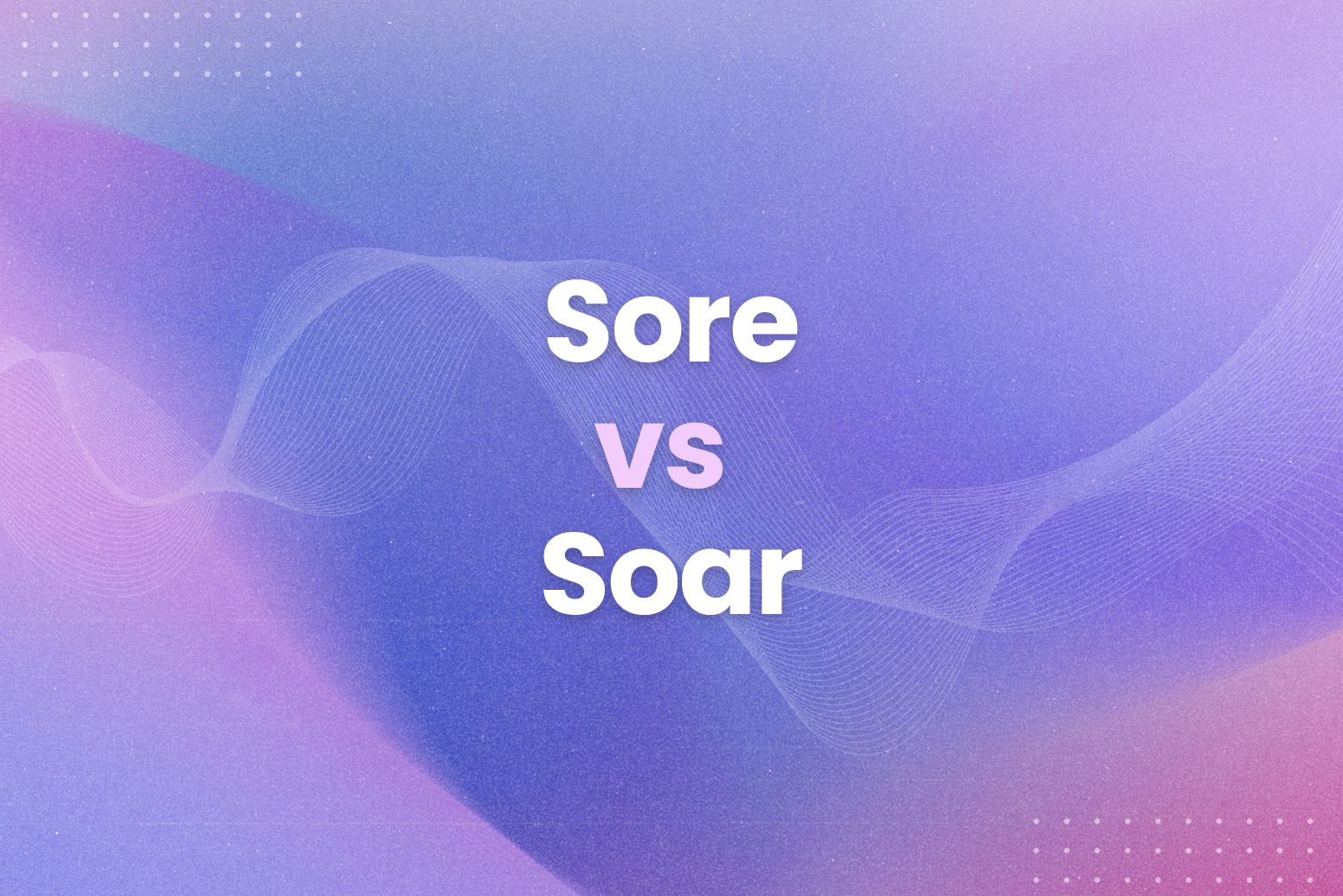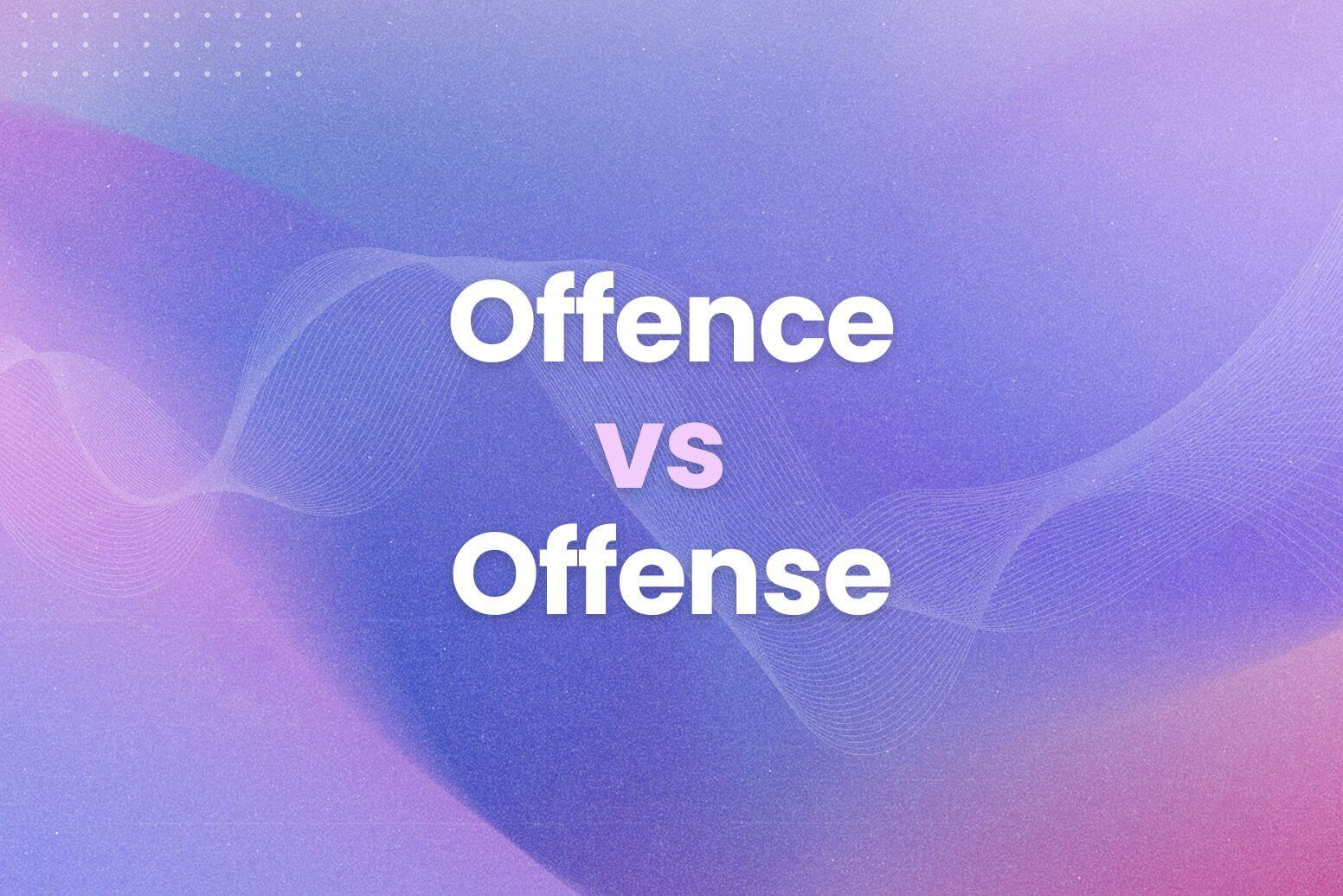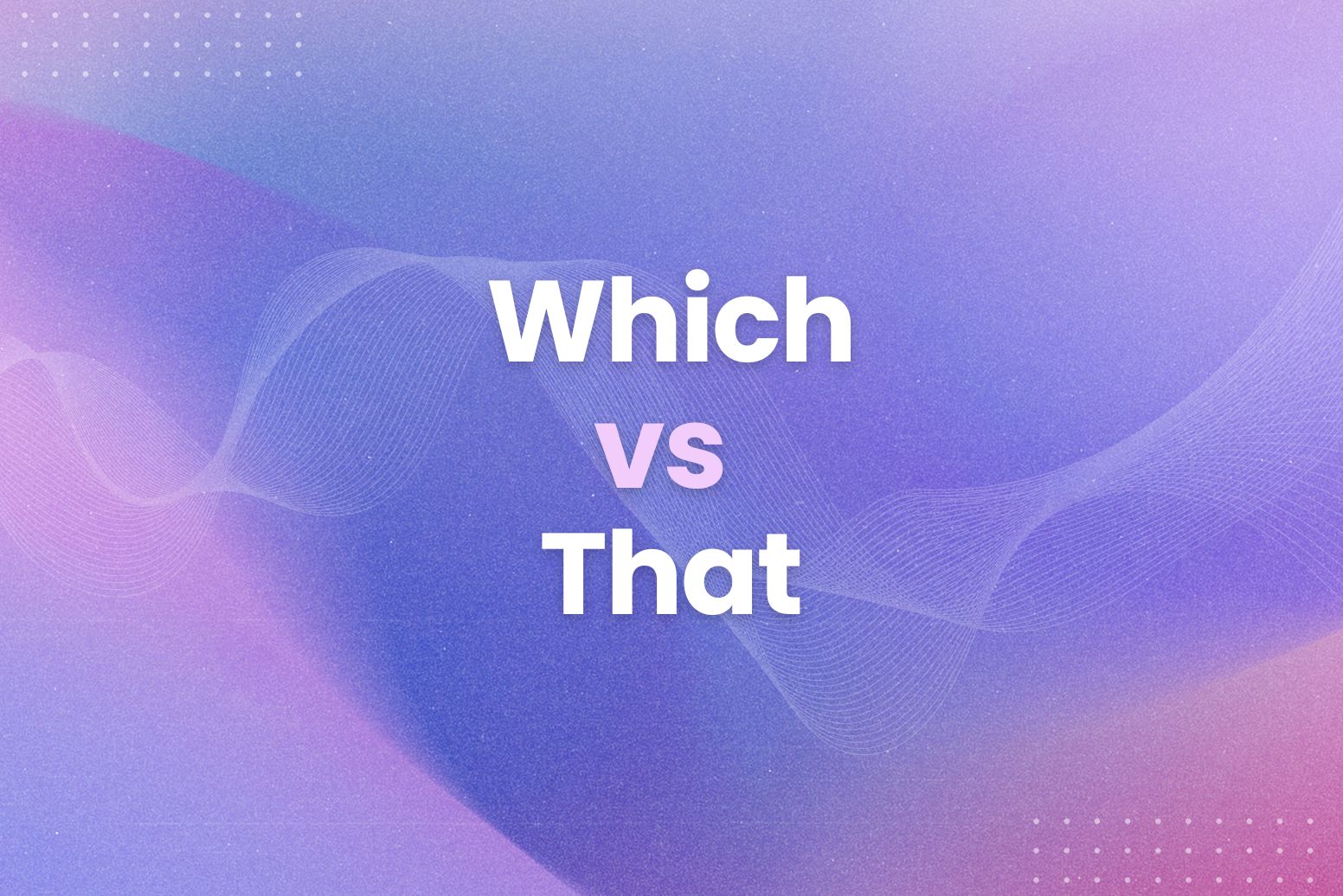Mixing up “sore” vs “soar” can lead to some awkward misunderstandings. One describes pain; the other is all about flying high. Despite their similar sounds, these two words couldn’t be more different. So, how do you keep them straight?
We’ll clear up the confusion in this guide. By the end, you’ll know exactly when to use each word—and why it matters.
Here’s what you’ll learn:
- Firstly, the definitions of sore and soar.
- Examples showing how to use them in sentences.
- Why context is key when choosing the right word.
- Lastly, some quick tricks to remember the difference.
Let’s get to it.
The Definitions of Sore vs Soar
Words like sore and soar might sound alike. But their meanings are worlds apart. One deals with discomfort, while the other is about freedom and movement. Let’s break them down.
- Sore: This word describes pain, irritation, or tenderness. For example, “After the workout, my muscles felt sore.” It can also express emotional hurt, like “She’s still sore about the argument.”
- Soar: This one paints a completely different picture. It means to rise or fly high, often with ease or grace. For example, “The eagle soared above the valley.” It can also be used metaphorically, as in “Her confidence soared after the promotion.”
In short, sore signals hurt, and soar signals elevation. Understanding these definitions is the first step in using them confidently.
Examples Showing How to Use Them in Sentences
Let’s explore how sore and soar fit into real sentences.
Using “Sore” in Sentences:
- Physical pain: “After running a marathon, my legs were incredibly sore.”
- Emotional upset: “He’s still sore about losing the game last weekend.”
- Describing irritants: “Her throat felt sore after hours of cheering at the concert.”
Using “Soar” in Sentences:
- Flying or rising: “The kite soared high above the beach on a windy day.”
- Figurative growth: “Profits soared after the new product launch.”
- Emotional elevation: “Her spirits soared when she heard the good news.”
Quick Pro Tip:
If you’re unsure, plug your sentence into Arvin’s grammar tool. It’s like having an extra set of eyes to spot mistakes or suggest corrections. For example, if you type, “I’m soar after the gym,” Arvin will suggest the correct form: “I’m sore after the gym.”
These examples show how these words shape meaning.
Why Context Is Key When Choosing the Right Word
Context is everything when it comes to sore and soar. Without it, even the clearest definitions can lead to misunderstandings. Let’s unpack why the words surrounding these terms matter so much.
Consider This Sentence
“After the game, my emotions soared.”
Here, soared suggests positive feelings—maybe pride or excitement. But change one word, and you’ve got a completely different tone:
“After the game, my emotions were sore.”
Now, it implies sadness or frustration. It has the same structure but an entirely different meaning.
How Context Guides Meaning?
- Sore usually appears alongside pain-related terms like “hurt,” “ache,” or “irritated.”
- Soar is often paired with words like “high,” “rise,” or “elevate.”
Why It Matters?
Choosing the wrong word can confuse your message. Imagine writing a heartfelt letter where you meant to say someone’s “spirits soared” but accidentally wrote “spirits were sore.” Awkward, right?
And then comes the Arvin AI article writer. Its advanced grammar feature reviews your text for mismatched words based on the context. This helps you catch mistakes before anyone else sees them.
Quick Tricks to Remember the Difference
Mixing up sore and soar is common. But you can avoid it altogether with a few memory hacks. These tricks are easy to remember and will save you from second-guessing yourself.
Think of the Sounds
- Sore sounds like “roar”—both are heavy and grounded. Picture the weight of pain or irritation.
- Soar rhymes with “air”—think of something light and floating upward.
Use Visual Cues:
- For sore, imagine a person rubbing their shoulder, clearly in discomfort.
- For soar, picture a bird gliding effortlessly in the sky.
Keep It in Context
Remember, sore often sticks to body aches or emotional pain. On the other hand, soar is tied to movement, growth, or elevation.
These tricks can save you a lot of confusion—and maybe a little embarrassment.
Confident Word Choices Made Easy with Arvin
Mixing up sore and soar doesn’t have to be a recurring headache. With the tips and tools in this guide, you’re now ready to tackle these tricky homophones with confidence.
So, here’s a quick recap of what we covered on sore vs soar:
- Firstly, definitions: Sore = pain; Soar = rise.
- Secondly, examples: Clear sentence use for both words.
- Then, the context: Why surrounding words matter.
- Lastly, memory tricks: Simple hacks to remember which is which.
Grammar mishaps happen to the best of us, but there’s no reason to stress. That’s where Arvin comes in. This AI browser extension does more than just check spelling.
It analyzes context, catches tricky word swaps, and ensures your writing stays sharp. So, if you’re polishing a work email or writing a blog. Arvin makes confusing moments like “sore vs soar” a thing of the past.
FAQs
What is the difference between soar and sore?
Sore refers to pain or discomfort, while soar means to rise or fly high. One is about hurt; the other is about elevation.
How do you spell sore as in pain?
You spell it s-o-r-e. It’s the same word used for physical aches or emotional upset.
Is it soar or sore muscles?
It’s sore muscles. This phrase describes muscles that feel painful after exercise or strain.
Is it soar or sore throat?
It’s sore throat. This term refers to irritation or pain in the throat, often from a cold or allergies.
Is it sores or soars?
Sores are painful spots on the skin or body. Soars is the plural of soar, referring to multiple instances of flying or rising.






